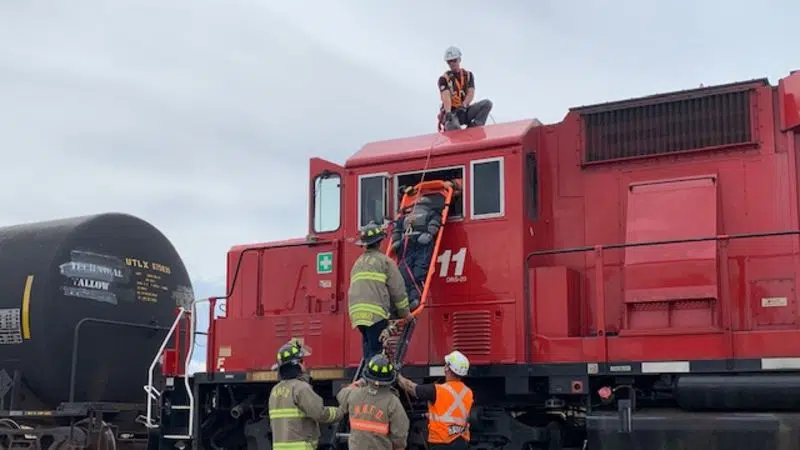
Local fire fighters train for railway emergencies
MEDICINE HAT, AB — Just two weeks after the community of Irvine was shaken by a train derailment, local responders are brushing up on their training.
They have been on scene at Medicine Hats rail yard on Tuesday and Wednesday, learning the best way to handle different railway emergency’s.
Responders include Medicine Hat and Cypress County Fire Fighters.

